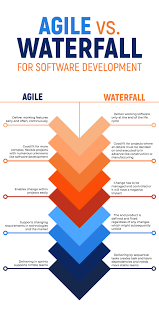Digital marketing is the use of digital channels such as websites, social media, search engines and email to promote products or services. It is a rapidly growing field that is becoming increasingly important for businesses of all sizes.
Digital marketers are responsible for creating and executing digital campaigns that drive awareness, engagement, leads and sales. They use a variety of tactics such as SEO, content marketing, email marketing, display advertising and social media to reach their target audience.
Digital marketers must have a strong understanding of how to track and measure the success of their campaigns. They must be able to identify key performance indicators (KPIs) such as website traffic, conversions and customer lifetime value in order to optimize their strategies. They must also be able to analyze data from multiple sources in order to make informed decisions about their campaigns.
In addition to technical skills, digital marketers must also possess strong communication skills in order to effectively communicate with clients and colleagues. They must be able to explain complex concepts in simple terms and provide clear recommendations based on data-driven insights.
Digital marketing is an ever-evolving field that requires continuous learning in order to stay ahead of the competition. Digital marketers must stay up-to-date on the latest trends and technologies so they can create effective campaigns for their clients.
Overall, digital marketing is an exciting field with plenty of opportunities for growth. It requires creative thinking, technical knowledge and strong communication skills in order to succeed.
Six Tips for Digital Marketers
- Stay up to date with the latest trends in digital marketing
- Utilize data-driven strategies and analytics to measure success
- Develop a comprehensive content strategy
- Leverage social media and influencers for increased reach
- Experiment with different platforms and tactics
- Focus on creating quality, engaging content that resonates with your audience
Stay up to date with the latest trends in digital marketing
As digital marketers, it is essential to stay up to date with the latest trends in digital marketing. With the ever-changing landscape of digital marketing, staying ahead of the curve is key to success.
One way to stay on top of the trends is to read industry blogs and publications. These can provide valuable insights into new technologies, strategies, and tactics that can help you stay ahead of your competition. Additionally, attending conferences and networking events can be a great way to meet other professionals in the field and gain exposure to industry trends.
Another important tip for staying up-to-date with digital marketing trends is to keep an eye on your competitors. By monitoring their activities, you can gain insight into what strategies are working for them and which ones may be worth trying yourself. Additionally, you can use competitor analysis tools such as SEMrush or Ahrefs to track their progress over time and identify any changes in their approach that could give you an edge.
Finally, don’t forget to experiment with new tactics and strategies yourself. Trying out new ideas can help you stay ahead of the game by giving you a better understanding of what works for your audience and what doesn’t.
By following these tips, digital marketers can ensure they are always up-to-date with the latest trends in digital marketing and remain competitive in this ever-evolving industry.
Utilize data-driven strategies and analytics to measure success
Data-driven strategies and analytics are essential components of digital marketing success. By utilizing data-driven strategies and analytics, digital marketers can measure the effectiveness of their campaigns, identify areas for improvement, and optimize their efforts for maximum impact.
Data-driven strategies allow marketers to make informed decisions about their campaigns. By analyzing data such as website traffic, conversion rates, and customer feedback, marketers can gain insight into what is working and what needs to be improved. This data can then be used to inform decisions about content creation, targeting strategies, and other aspects of the marketing process.
Analytics tools provide valuable insights into the performance of digital campaigns. These tools can track key metrics such as website visits, time on site, bounce rate, conversions, and more. This data can be used to identify areas for improvement in order to increase the effectiveness of a campaign. Analytics also provide an opportunity to track ROI (Return on Investment) so that marketers can determine which campaigns are most profitable and should be further optimized or scaled up.
By utilizing data-driven strategies and analytics in their digital marketing efforts, marketers can ensure they are making the most efficient use of their resources while maximizing their return on investment. Data-driven strategies also allow marketers to adjust quickly when needed in order to stay ahead of the competition and remain competitive in an ever-evolving digital landscape.
Develop a comprehensive content strategy
Content is key for digital marketers, and developing a comprehensive content strategy is essential for success. A content strategy should be tailored to the needs of the target audience, and should include a variety of different types of content. Content should be created with an eye towards SEO, as well as providing value to the reader.
Creating a content strategy involves researching and understanding the target audience, their interests, and what they are looking for in terms of content. This research can then be used to create a plan that outlines the types of content that will be created, how often it will be published, and where it will appear. Additionally, it’s important to set goals for each piece of content and track its performance.
Content can take many forms, including blog posts, videos, podcasts, infographics, case studies, whitepapers, e-books and more. It’s important to mix up the types of content in order to keep readers engaged and ensure that there is something for everyone. Additionally, it’s important to create evergreen content that can be repurposed over time in order to maximize its value.
A comprehensive content strategy can help digital marketers reach their goals by providing valuable information to their target audience in an engaging way. By taking the time to research their target audience and create a plan that includes a variety of different types of content delivered on a regular basis, digital marketers can ensure that their message is heard loud and clear.
Leverage social media and influencers for increased reach
As digital marketers, one of the most effective ways to increase your reach is to leverage social media and influencers. Social media platforms like Facebook, Twitter, Instagram, and YouTube have become powerful tools for brands to reach their target audiences. By creating content that resonates with your target audience and engaging with them through social media, you can quickly expand your reach.
Another way to increase your reach is through influencer marketing. Influencers are people who have a large following on social media that trust their opinion and are more likely to buy from them. By partnering with influencers who have a large following in your industry, you can get more eyes on your product or service. This can be done by having influencers create content about your product or service, or by sponsoring their content so that it reaches more people.
By leveraging both social media and influencer marketing, digital marketers can quickly expand their reach and gain more visibility for their brand. With the right strategies in place, you can tap into new audiences and grow your business faster than ever before.
Experiment with different platforms and tactics
In today’s digital world, marketers must stay ahead of the competition by experimenting with different platforms and tactics. With so many digital marketing options available, it can be difficult to know which ones will be most effective for your business. By experimenting with different platforms and tactics, you can determine which ones are best suited for your business and its goals.
For example, if you’re trying to reach a younger audience, experimenting with social media platforms like Instagram or Snapchat may be beneficial. You can also try out different types of content such as video, infographics or blogs to see which ones are most effective at engaging your target audience. Additionally, you can experiment with different types of advertising such as pay-per-click (PPC) ads or search engine optimization (SEO).
Experimenting with different platforms and tactics is an important part of any digital marketing strategy. By testing various strategies and platforms, you can determine which ones are most successful at reaching your target audience and achieving your goals. Additionally, experimenting allows you to stay ahead of the competition by being one step ahead in terms of technology and trends.
Overall, experimentation is key when it comes to digital marketing success. By testing various strategies and platforms, you can find out what works best for your business and its goals.
Focus on creating quality, engaging content that resonates with your audience
Creating quality, engaging content that resonates with your audience is essential for digital marketers. Quality content helps to build trust with your audience and ensures that you are providing them with the information they need. Engaging content is also important as it encourages readers to take action and become more involved in your brand.
To create quality content, start by researching what topics are trending in your industry and developing content around those topics. You should also ensure that the content is well written and easy to read. Additionally, make sure it’s relevant to your audience and provides value for them.
When creating engaging content, focus on creating visuals that will capture the attention of your readers. This could include infographics, videos, or images that help illustrate the points you’re making in the article. Additionally, use storytelling techniques to create a narrative around the topic you’re discussing.
Finally, make sure that the content resonates with your audience by understanding their needs and interests. Ask yourself questions like “What would my target audience find interesting?” or “What kind of problems can I solve for my readers?” Once you understand what resonates with them, you can create content tailored towards those needs and interests.
By focusing on creating quality, engaging content that resonates with your audience, digital marketers can ensure they are providing valuable information to their readers while also building trust and loyalty with their target market.




